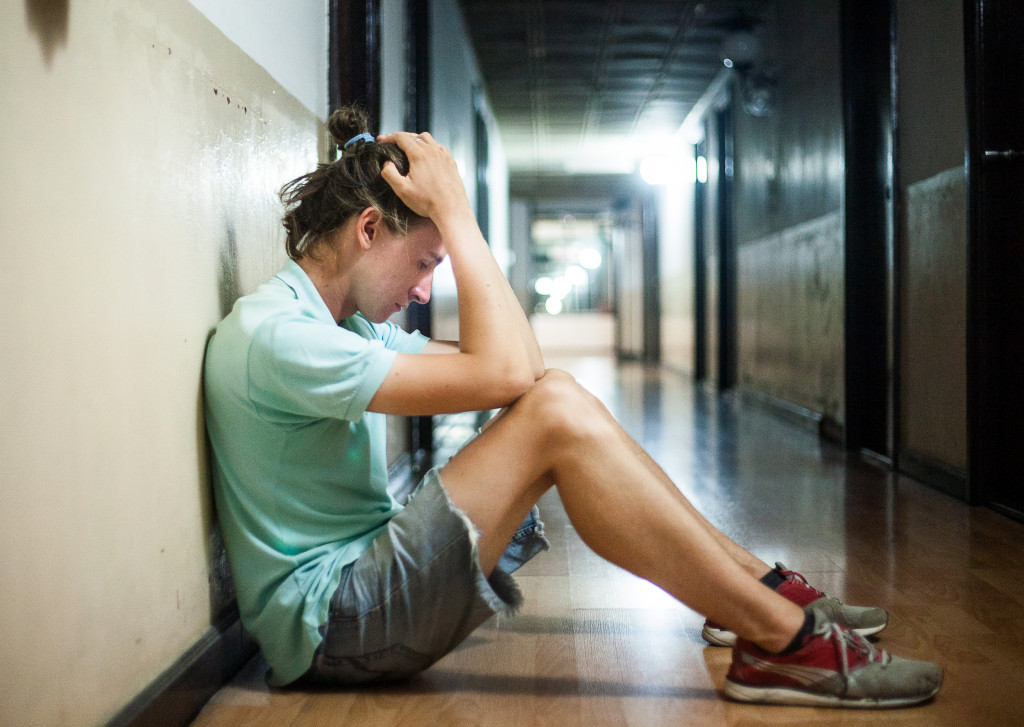- CBT is a type of therapy that transforms negative thoughts into positive ones, which helps to lower stress and anxiety levels.
- DBT is a therapy that helps people manage stress by using skills like mindfulness, distress tolerance, emotion regulation, and interpersonal effectiveness.
- Connecting with others going through similar experiences can be done through support groups and online communities, which provide a safe space.
- Practicing mindfulness meditation can enable individuals to cope with stressors more positively.
Everyone experiences stress and anxiety from time to time. Sometimes it can be overwhelming, but there are techniques and resources available that can help you cope with these feelings. By using these tools and strategies together, you can take control of your mental health and live a more balanced life.
Therapy Treatments
Various therapy treatments are designed to help people work through their stress and anxiety. Here are a few of the most common types:
Intensive Outpatient Trauma Therapy
Intensive Outpatient Trauma Therapy is a program that offers structured support for those struggling with mental health issues resulting from traumatic experiences. This program is designed for individuals who do not require hospitalization or in-patient treatment but need a higher level of care than traditional outpatient therapy can provide.
This offers various services, including individual and group therapy sessions, educational resources, and coping strategies for managing stress and anxiety. Its primary focus is to help individuals develop healthy coping mechanisms by addressing underlying emotional issues and developing positive behaviors to prevent future problems.
This type of therapy is crucial for individuals seeking sustainable and long-lasting ways to deal with their mental health conditions. With expert guidance, patients can overcome their struggles and lead happier and healthier lives.
Cognitive Behavioral Therapy (CBT)

Using Cognitive Behavioral Therapy (CBT) is a helpful method to cope with stress and anxiety. CBT focuses on the connection between one’s thoughts, emotions, and actions in talk therapy. The goal of CBT is to assist people in recognizing negative or unrealistic thoughts and substituting them with logical and positive ones.
By changing negative thought patterns, individuals can reduce their anxiety and stress levels and learn to manage their emotions more healthily. This technique is important because it provides individuals with practical and long-lasting coping skills to manage stress and anxiety in their daily lives. CBT has been proven to be an effective approach to managing and reducing stress levels, allowing individuals to find peace and clarity in their daily lives.
Dialectical Behavior Therapy (DBT)
Dialectical Behavior Therapy (DBT) is a form of cognitive behavioral therapy designed to address the emotional and relational challenges of individuals who struggle with mental health issues such as borderline personality disorder, depression, and substance abuse. DBT is based on the dialectical theory which proposes that two opposing concepts can be true simultaneously.
DBT emphasizes the skills of mindfulness, distress tolerance, emotion regulation, and interpersonal effectiveness as effective tools for coping with significant life stressors and emotional disturbances.
Studies suggest that DBT effectively reduces self-harming behaviors and improves overall quality of life. In a society that constantly presents us with multiple stressors, the importance of such a tool cannot be overstated.
Support Groups or Online Communities
Support groups and online communities have become increasingly popular in recent years to cope with various challenges and difficulties, including stress and anxiety. These groups provide a safe and supportive environment for individuals to connect with others who are going through similar experiences and can offer empathy, understanding, and practical advice.
Research has shown that participating in such groups can positively impact mental health, improving feelings of belonging, reducing stress, and enhancing overall well-being. Whether through in-person meetings or online forums, the support and camaraderie offered by these groups can be a vital form of self-care and an effective weapon against stress and anxiety.
Mindfulness Meditation

Mindfulness meditation is a powerful tool for coping with daily stresses and anxieties. It involves focusing your awareness on the present moment and accepting it without judgment. The practice can calm the mind, increase self-awareness and self-compassion, and improve overall well-being.
By training the mind to be present, mindfulness meditation can help individuals respond to stressors more positively and reduce their impact on mental health. Making mindfulness meditation a regular practice is important to reap the full benefits and develop coping skills for stress and anxiety.
Exercise and Physical Activity
Exercise and physical activity are highly recommended ways of coping with stress and anxiety. Engaging in regular physical activity helps to produce endorphins, which are the body’s natural painkillers and mood elevators. This in turn helps alleviate stress and anxiety and enhance happiness and well-being.
Furthermore, exercise greatly distracts from the negative thoughts and worries often associated with stress and anxiety. By focusing on physical activity, individuals can take their minds off their problems and instead channel their energy into something positive and beneficial for their physical health. The many benefits of exercise and physical activity must be incorporated into one’s daily routine as a coping mechanism for stress and anxiety.
These are just a few coping strategies for those struggling with stress and anxiety. Remember that each person has unique needs, so finding the most effective techniques for yourself is crucial.

